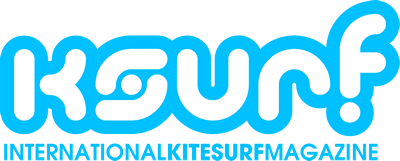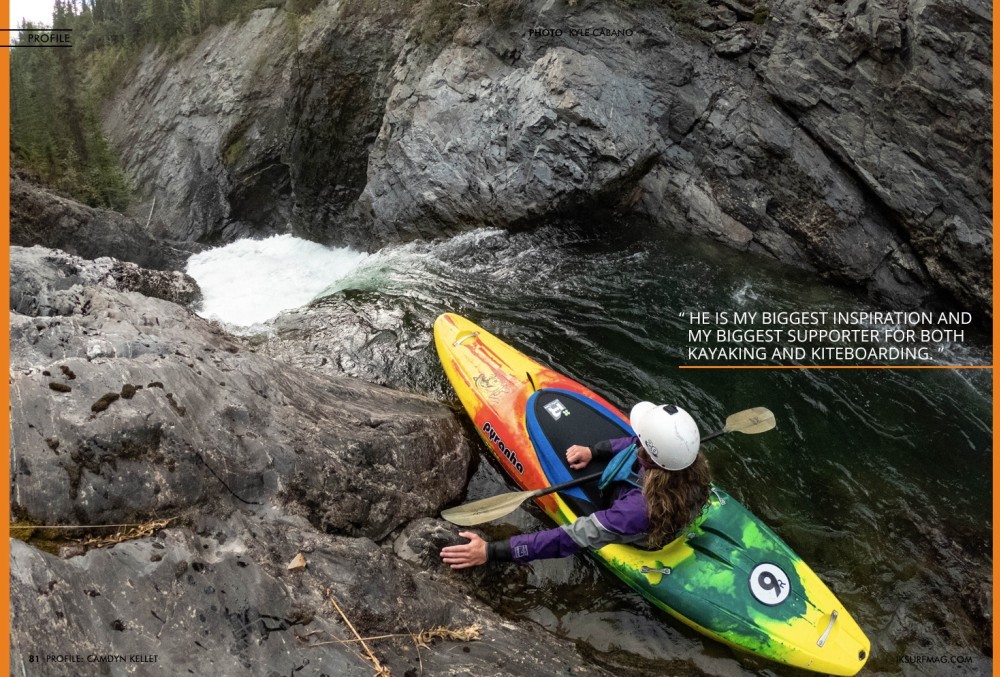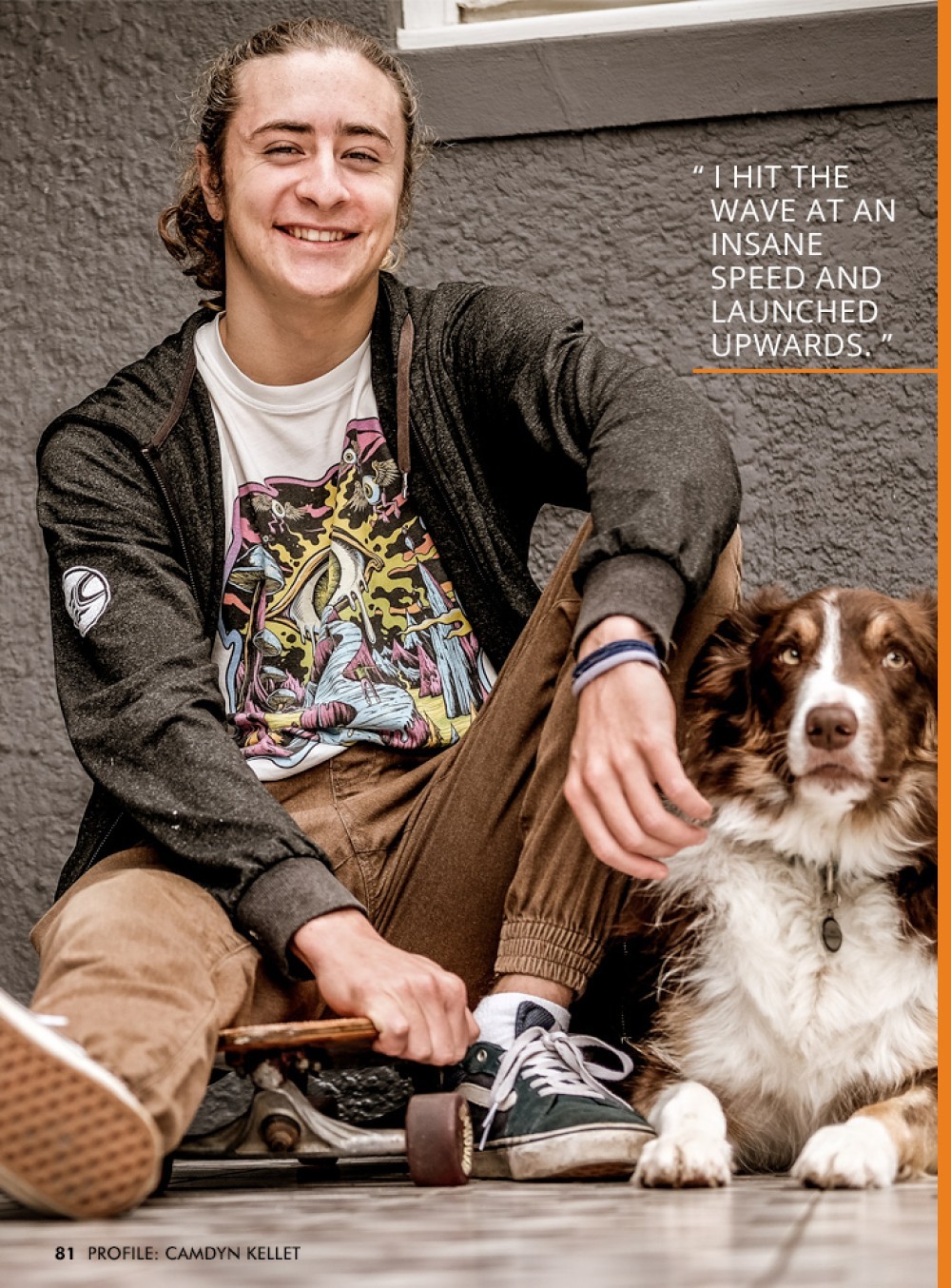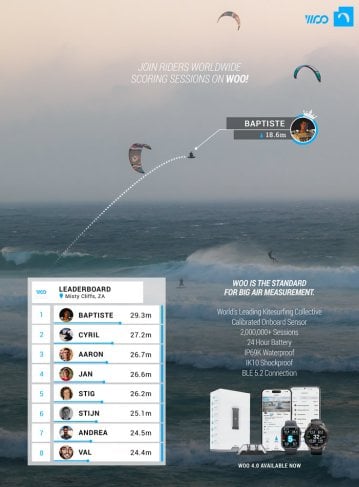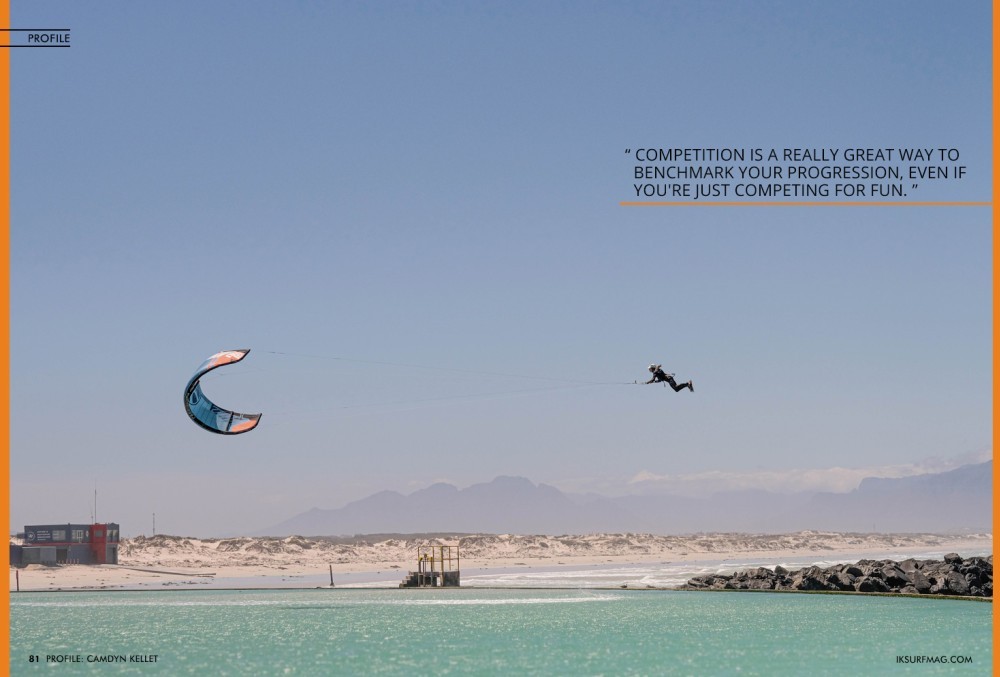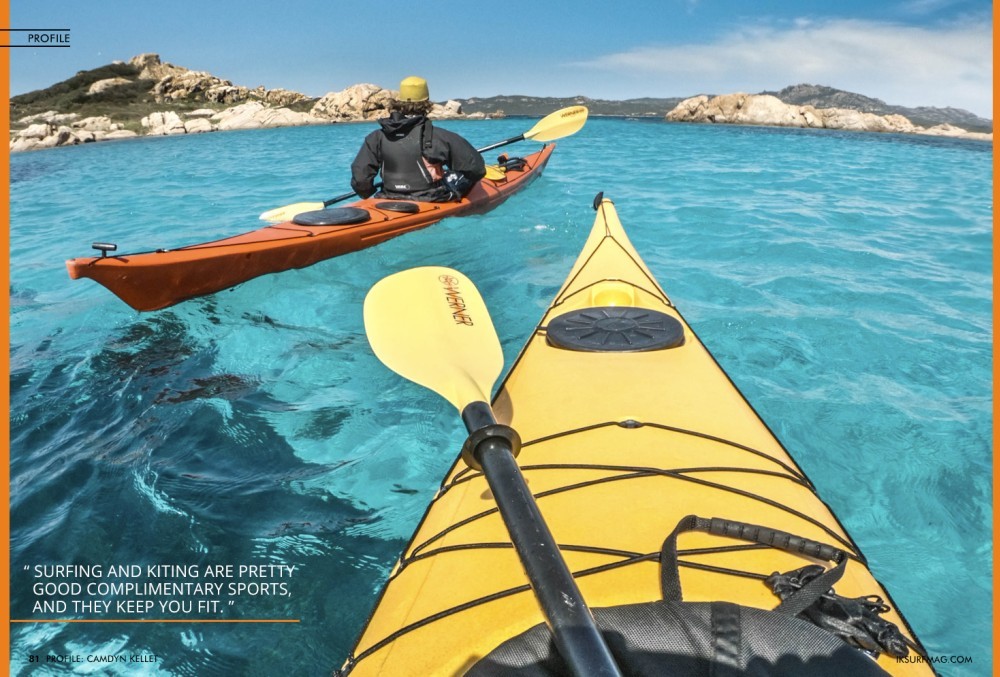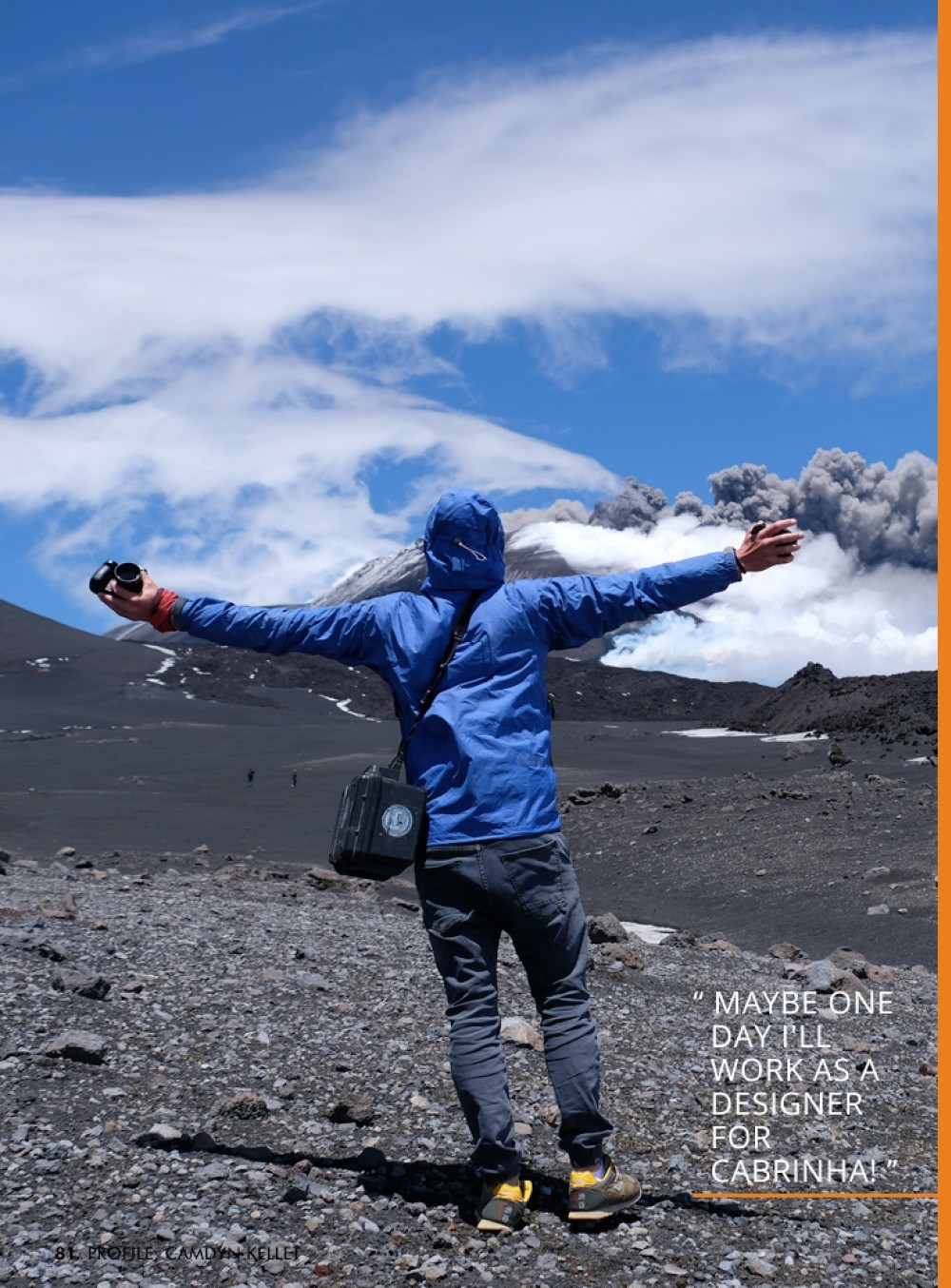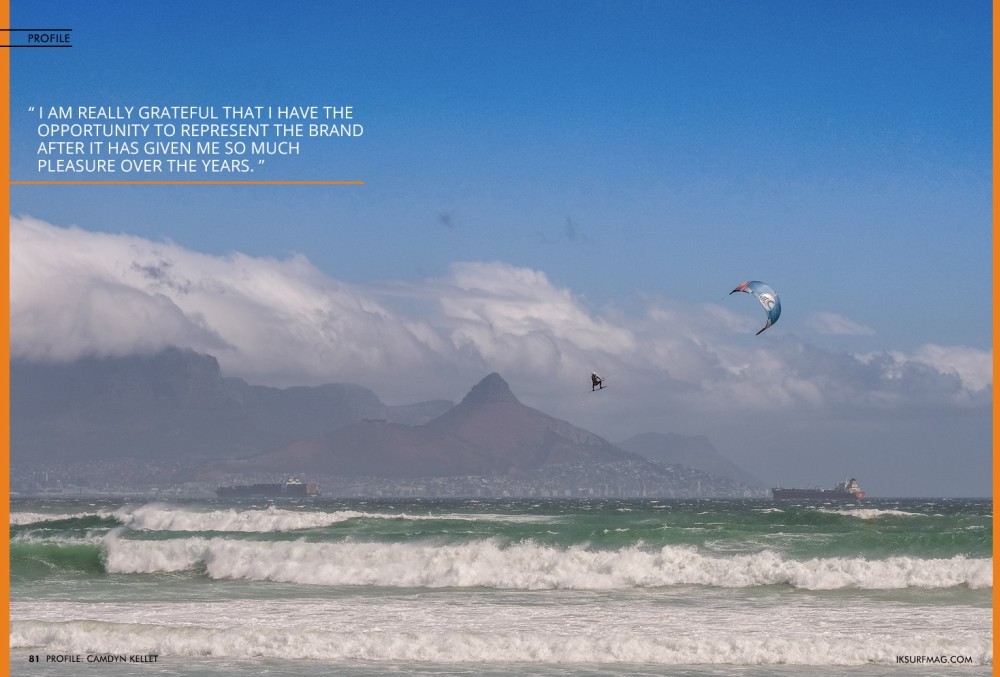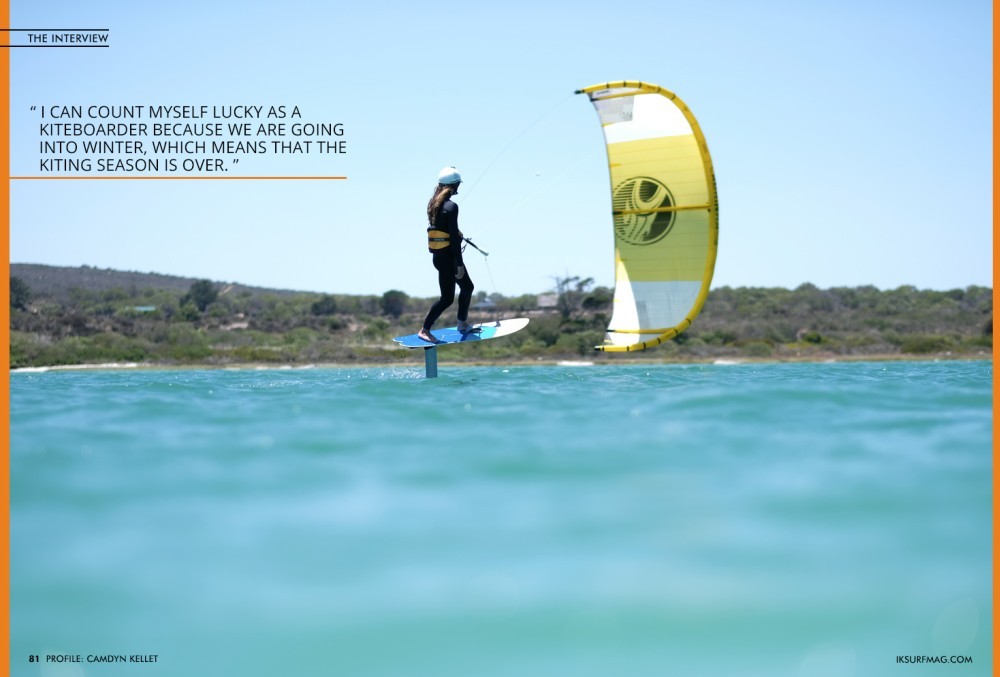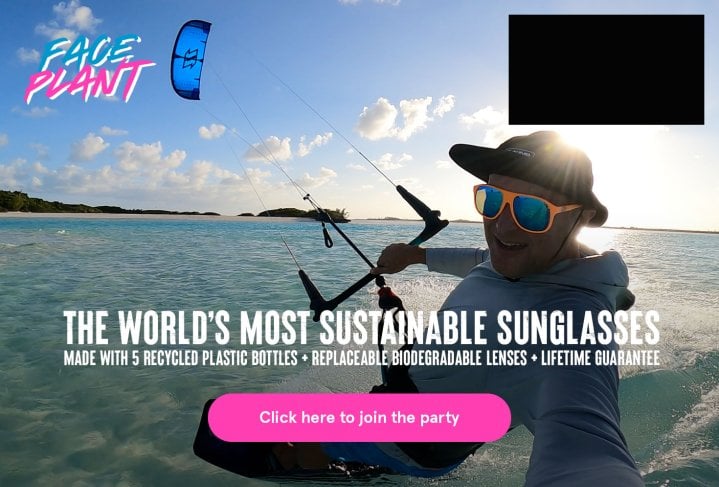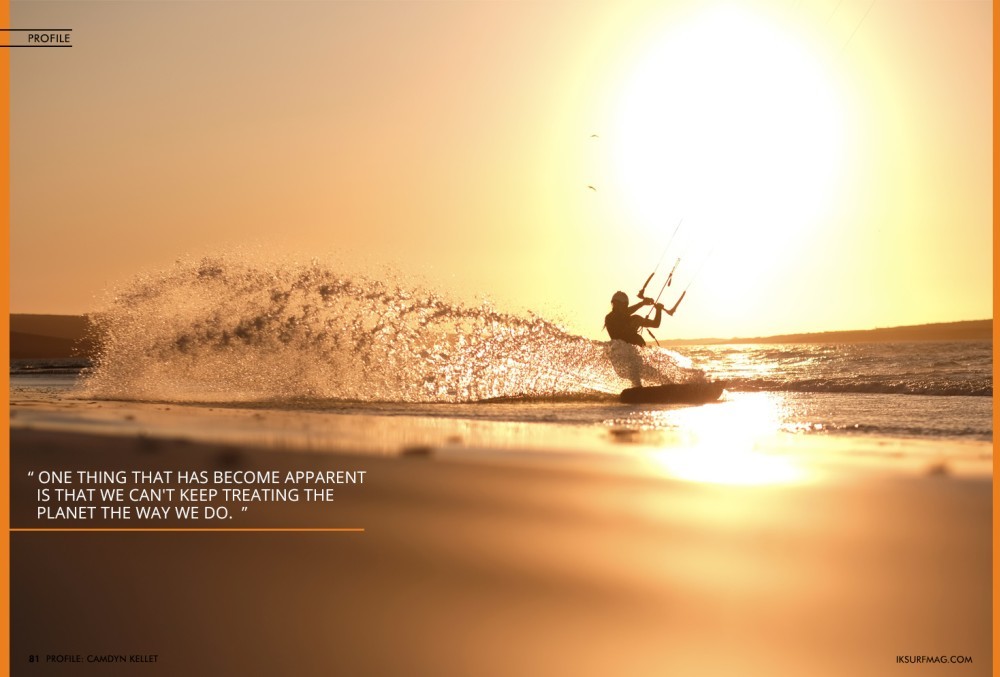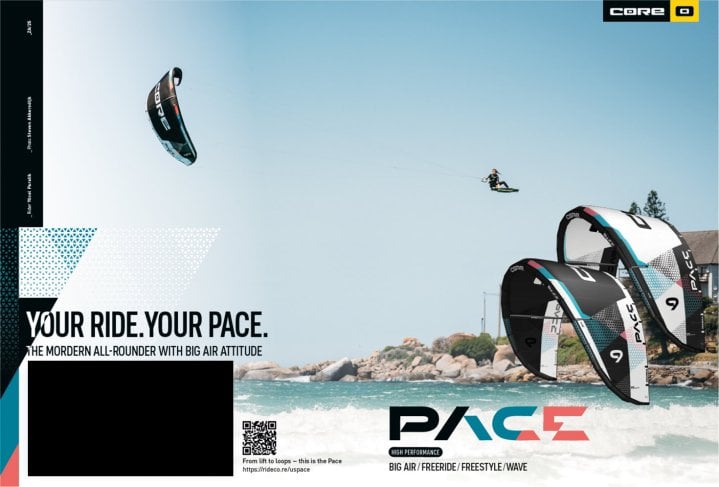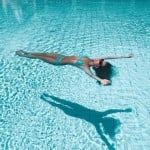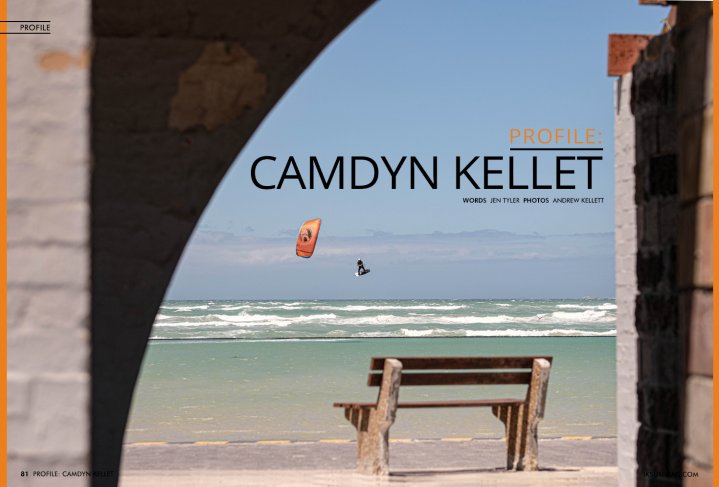
Profile - Camdyn Kellet
Issue 81 / Fri 12th Jun, 2020
Camdyn Kellet has arguably scored the youngest cover shot we’ve ever run, the South African is just starting his career but if the early signs are anything to go by the future is going to be bright! Find out what makes the young man tick right here!
Born and raised in South Africa, Camdyn Kellet is an adventurer, videographer, and big air addict. Read his interview to find out how it all began for Camdyn, his family, his passions and how he plans to join the sport's big air legends!
Camdyn, it's great to meet you! Could you tell us a little about yourself? Where did you grow up? How did you get into kiteboarding?
Thanks for this awesome opportunity! Growing up, I had a slightly different childhood than most kids. My parents own an adventure tourism company based in Cape Town called Gravity Adventures. Our company specialises in wilderness rafting trips on South Africa's largest river; the Orange River. My parents took me on my first river trip when I was only six months old, and nowadays, I work there as an adventure guide.
My father is a true waterman. He grew up in Cape Town and found his passion as a professional white-water kayaker. Living in Cape Town, he learned to kiteboard in the mid-2000s and has been kiteboarding ever since. He is my biggest inspiration and my biggest supporter for both kayaking and kiteboarding. My first memory of kiteboarding is when I would ride doubles between my dad's legs. When I was 14 years old, I started taking kiteboarding and wakeboarding lessons. I used to surf loads, but I got tired of the overcrowded surf spots around Cape Town and started focussing mainly on kiteboarding.
I didn't quite fit in at school, but when I was 17 years old, I got a scholarship to attend the World Class Kiteboard Academy. My progression in both my riding and my academics was staggering. Imagine spending your time travelling to the worlds' best kite spots with kids from all over, living and working together, experiencing worldwide local cultures and riding whenever possible – it was a dream come true!
When did you first get into big air?
After a few seasons of training, I started landing new tricks more often, jumping higher and experimenting with backroll kite loops. The turning point for me was during a wild session at Kite Beach. I was out on my 6m, and I had been practising my backroll kiteloops, but I had never landed any regular kiteloops before. I remember tacking out, and then I hit a gust, at that point, I knew that I needed to send it! I hit the wave at an insane speed and launched upwards. I pulled the loop way too early and got yanked pretty high, at this time I didn't really know what a downloop was, so I crashed, really hard! I don't think that I have ever been that stoked in my entire life! It was then and there that I became addicted to big air.
With so many different disciplines, if you had to pick just one, what would be top of the list?
I would like to say that it would be a tough choice, but it really isn't! For me, kiteboarding is all about big air, boosts and fat loops! Kiteboarders come to Cape Town for one thing - big air, and as a beginner, it was awesome to share the water with the same pro's that you see in the magazines! Looping in 35 knots and feeling the pull of the kite is just indescribable and it's that feeling that keeps me hooked.
Once I was steadily progressing with big air, I remember seeing a video of Philipp Zach looping ridiculously low on short lines in Hermanus. That video ignited my interest in short lines, so I decided to get an old bar set up with some short lines. At first, I didn't really know what length I should go for, but I knew that I wanted to try something new and different. I ended up getting a set of 9m lines on a 44cm bar. With short lines you can loop the kite so low it's actually ridiculous!
How and when did you first start competing? Is being a pro rider a direction you'd like to continue in, or is it something you'd like to do on the side?
The first competition I ever entered was set up by WCKA to simulate the GKA Freestyle format. Freestyle was brand new to me, and I had really only been unhooking for about two weeks at that point! Unsurprisingly, I didn't do particularly well, but I learned so much and nearly landed a new trick. I think that competition is a really great way to benchmark your progression, even if you're just competing for fun.
As a big air rider, based in Cape Town, I don't think it will really be possible to compete as a profession - there are just not enough competitions to ride in and make a living on. However, I will still enter every big air competition.
What are your other passions besides kiteboarding?
I have had a deep connection to the ocean since I was a little baby. I try to get a session in at least three times a week. If there's no wind, then the surf will be clean. Surfing and kiting are pretty good complimentary sports, and they keep you fit. Lifesaving was also an important activity for me as a teen – it's great for fitness, and I enjoyed the fact that it's a community service. I also love white water kayaking and have paddled some incredible African rivers like the Zambezi, White Nile and Tana.
When I first joined WCKA, I really wanted to document my experiences, and I decided to pick up the camera and learn to make videos. It became a passion of mine, and I really enjoy seeing an idea turned into reality. Along with filming comes the editing. I definitely don't enjoy editing as much as filming, but the two go hand in hand.
Not many people know this about me, but I am a bit of a nerd! Since I was young, I was always taking old broken electronics apart to find out how they worked. As I got older, I discovered that you can build computers! I have channelled that passion into something useful, and I now run a small business that repairs and upgrades older computers to avoid them being thrown away. This approach is great for the environment as it saves a whole computer from ending up in the dump.
How do you balance studying, training, kiteboarding, family and making time to hang out with your friends?
In Cape Town, there are many non-windy days, especially in winter, so I don't have to worry about making time to hang out with my non- kiteboarding friends. When I was at school, being able to kite was a bit of an issue, but luckily the wind blows the strongest in the evenings.
I had planned to take a gap year this year, and I was supposed to be travelling and kiteboarding, but COVID-19 has put a spanner in the works. I'm still trying to decide what to study, but am thinking of something in the design field; who knows, maybe one day I'll work as a designer for Cabrinha!
How long have you been riding for Cabrinha, and what is your quiver of choice?
My dad's first kite was a Switchblade, and he has ridden Cabrinha ever since. Once I had learned to kite, and it had become apparent that I would need my own kites, the obvious choice was Cabrinha. My first kite was a 5.5m Drifter - I absolutely loved that thing! Living in Cape Town as a grom, a 5.5m was often more than enough for me, and on those light wind days, my dad's 7m was ideal.
My quiver changes slightly depending on where I am. For Cape Town, I ride a 7m Switchblade and an 8m FX. On the lighter days, I am either foiling or go for a freestyle session on the 10m FX, if it's too light for the 10m then I have an older 15m Contra. That thing pulls like a truck, but slacks surprisingly well for such a massive kite.
Board wise, I am using a 135 Ace Hybrid - Cabrinha's newest generation of performance freeride boards. I switch it up with a 142 CBL for freestyle and those missions to the wake park. The CBL is a great choice because it works well for both kiteboarding and park riding, and the best part is that you don't need to change a thing.
I have ridden Cabrinha kites since the start, and I am really grateful that I have the opportunity to represent the brand after it has given me so much pleasure over the years.
What major differences do you notice between older and newer professional kiteboarders, and if you could change one thing, what would it be?
The biggest difference that I can clearly see is the big gap in kite technology. That is one of the most unique things about kiteboarding as a sport, new technologies are still being developed yearly, and I believe that kite designs still have a long way to go and are far from being fully developed. Most of the older pros learned to kite when kiting technologies were still in their infancy. These guys started off on two-line kites, which are unforgiving and have a very low-performance standard compared to modern kites. Most of the new, young pros have only been kiting for only the last 7 - 10 years, and in kiteboarding, 10 years is just about half the time the sport has been around!
When kiteboarding came about, and the first few pros were emerging, there was no one to follow, no one to watch and get inspired by. The first 10 years of kiting were when most tricks were invented. Many tricks have been invented but not yet landed, so there is still tonnes to do in the sport.
If I could change one thing, it would be to make kiteboarding gear truly sustainable; designed with longevity in mind and manufactured from eco-friendly materials.
How have you been handling lockdown? What have you missed most, and what have you learnt throughout this whole experience?
Lockdown has been pretty interesting over the last few months, especially in South Africa. Our lockdown started about a month later than most places, and we are still in the early stages of infection. Our president enforced a full lockdown for a month, and slowly but surely, the restrictions on things such as outdoor exercise are being relaxed.
I can count myself lucky as a kiteboarder because we are going into winter, which means that the kiting season is over. I think if the wind was blowing now, while our beaches are still closed, I would be pulling my hair out!
The lockdown has presented a few lessons to be learned, some harsher than others. One thing that has become apparent is that we can't keep treating the planet the way we do. We seriously need to change something, if not everything. We need to protect and restore nature as if our lives depended on it – because they do!
In South Africa, the lockdown has caused a lot of suffering, and many people need food support. Helping out at a voluntary feeding scheme has made me learn to appreciate everything we have and not to take things for granted.
Thanks Camdyn, looking forward to catching up for a session soon!
Thank you Jen!
Videos
By Jen Tyler
Italian/Egyptian Jen Tyler grew up on the sandy beaches of the Red Sea and has been on the IKSURFMAG & Tonic Mag team since 2017.
